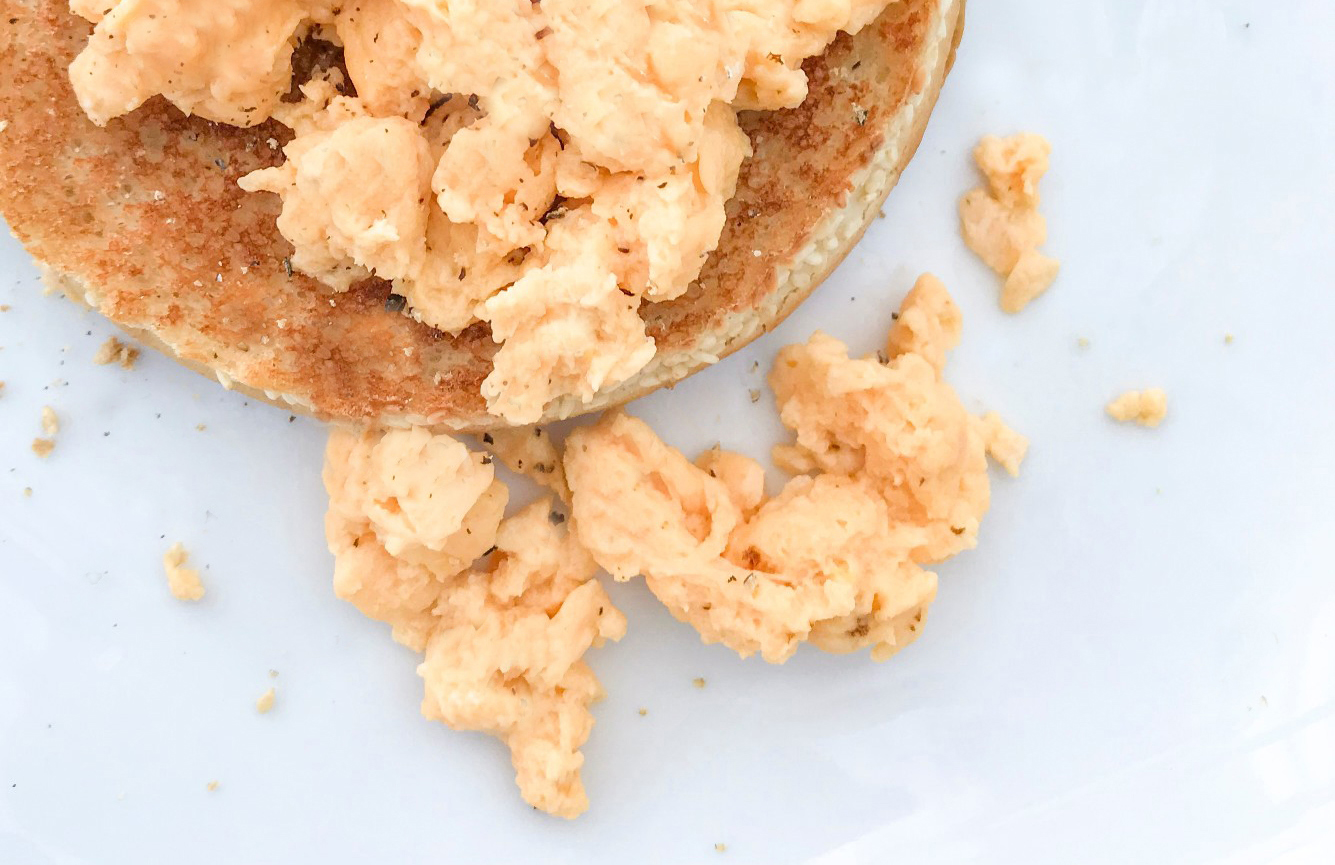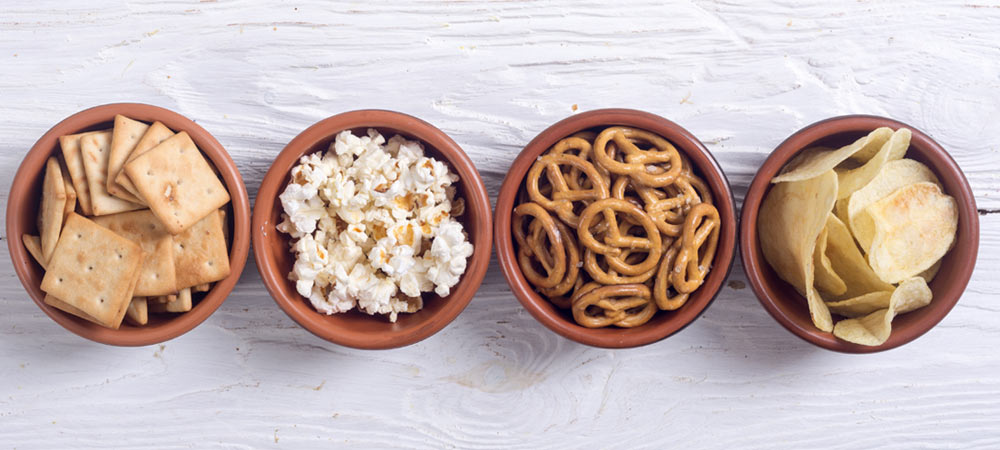Best Foods for Morning Sickness—and How to Keep Them Down

You’ve heard pregnant women should up their calories, but downing anything at all sounds like a cruel form of torture right about now. How can you overcome the nonstop nausea and nourish your body and your baby? Begin by taking a deep breath. Feeling guilty about your nutritional shortcomings will only add stress to the situation and make morning sickness worse from a draining emotional perspective.
Take small steps—when you can eat, eat healthy foods. Consume small meals and snacks throughout the day. Drink plenty of fluids to avoid becoming dehydrated. While you might still be feeling less than your best, meeting these goals should help you manage your health a little more successfully.
Nosh Through the Morning Sickness
When you’re feeling green, helping yourself to a snack is likely the last thing on your mind. However, nothing perpetuates nausea like an empty stomach, which is a reason why you may experience morning sickness immediately upon waking up in the morning. When you make an effort to keep something in your stomach at all times, you’re apt to find your nausea fading. Stock up on healthy, innocuous snacks like whole-grain saltine crackers, pretzels, nuts and dried fruit, and keep them stashed in accessible places—by your bedside, in your car and in your desk at work. Keep meal sizes reasonable, so you’re not leaving the table overly full. In general, try to maintain a slow and steady food intake at any time of the day.

As you’re meal planning, lean toward foods that are healthy with high protein but not too rich, spicy or odorous. While many women come to crave strong flavors later in pregnancy, the early, queasy weeks of the first trimester often call for calmer fare and bland foods. (Someone pass the baked potato!) Take advantage of the times you’re feeling well enough to go grocery shopping and cook—you can always reheat made-ahead meals on days when you have an upset stomach and less pep in your step.
When nothing sounds appetizing, try calming your stomach with ginger (fresh ginger, real ginger ale, ginger tea or candied chews) or citrus fruit before eating anything more solid. Adding lemon or orange to your water can ease digestion, too—and keeping your BMs regular will help keep your appetite up and your discomfort level down.
Munchies That Matter
Although it can feel like a triumph getting anything down when you’re in the throes of morning sickness, all snacks are not created equal. If you fall short of fulfilling nutritional needs, baby can still enjoy good health and thrive as he steals nutrients from your body; your wee one takes what he needs from what you are able to actually eat before you do, so only you will feel the effects of being sick.
It’s nice to know that baby isn’t suffering right along with you; however, baby siphoning calcium from your bones and you becoming weaker as a result is not exactly ideal. So do your best to round the nutrient bases by eating whole foods, and fill in the gaps with a daily prenatal vitamin.
Certain nutrients—whether they come from foods or from vitamin supplements (or better, both!)—are vital to a pregnancy’s success. Dietitian Willow Jarosh, MS, RD, co-owner of C&J Nutrition and the WellRounded NYC program, recommends balancing each meal with fruits or veggies, protein, high fiber (less refined) carbs and some healthy fat. Incorporate these top pregnancy foods to help fight the poor nutritional effects of morning sickness:
Smoothies Rich in Calcium
For strong bones and teeth, as well as for maintaining muscle, blood clotting and heart rhythm. Easily add your preferred milk, yogurt and high-calcium greens like spinach or kale to your next blend.
Mushrooms for Vitamin D
Specifically chestnut and portobello varieties, to utilize calcium. You can also eat vitamin D-enriched dairy products or a fortified dry cereal, take a supplement, or enjoy lots of sunshine.
Legumes and Whole Grains for Iron
To produce red blood cells and transport oxygen. Our bodies cannot produce iron alone, so it’s important to consume this vital mineral regularly.
Eggs for Protein
To maximize baby’s brain development and protect mom against certain pregnancy complications. (Protein also helps minimize nausea, so it’s worth trying even if it doesn’t sound appealing!) Scrambled, hard-boiled, fried or over-hard (save over-easy and medium for postpregnancy), each method packs a punch of your prenatal protein needs.
Dark, Leafy Greens for Folic Acid
To prevent neural tube defects and form red blood cells. A supplement is recommended (not only for expectant moms, but all women of childbearing age), but it’s also prudent to consume additional folate to ensure adequate supply. Leafy greens also aid in digestion and offer a multitude of other benefits throughout pregnancy.
Salmon for Vitamin B6 and Omega-3 Fatty Acids
Particularly DHA, to facilitate baby’s neurological and visual development. (Don’t worry, salmon is approved for pregnancy due to low mercury content).
Water for Hydration
Eases common pregnancy woes—such as heartburn, constipation, swelling and nausea. While not technically a food, water made the list because it is absolutely essential for all physical processes, including making a baby. Normally, drinking water is a pretty easy feat, but there may be times when you’re so sick, even good old H2O is hard to keep down. Try sipping hot water or sucking on ice cubes or popsicles if straight liquid is triggering your gag reflex—Gatorade with electrolytes and juice also count if easier to drink. When you’re hydrated, everything operates more smoothly for mom and for baby.
Even when anything you down seems to come back up, the smallest amount of water and nutrients from food will stick with you and do you good. If you go an entire day without keeping down liquid, if you’re unable to pee or if your urine is dark and stronger smelling, call your doctor. Dehydration can become serious quickly and could necessitate medical attention.







